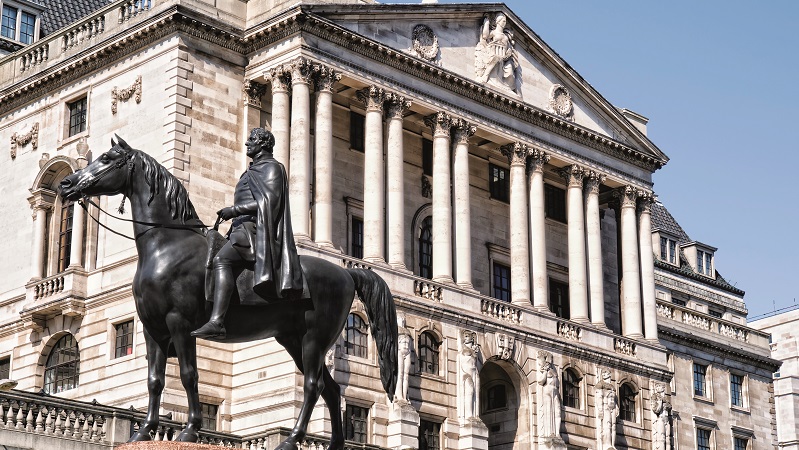A shock contraction in UK gross domestic product in April has sparked fears the economy is headed for a recession, complicating matters for the Bank of England which is expected to raise rates by another 25 basis points later in the week.
After a 0.1% hit to growth in March, analysts had expected the UK to bounce back by the same amount in April, but were instead met with a 0.3% slump.
Construction, services and production all registered declines during the month, the Office for National Statistics said, the first time all main sectors have contributed negatively to a GDP estimate since January 2021.
Healthcare was the biggest downward contributor due to the winding down of the NHS test and trace scheme.
Consumer-facing services was an outlier, rising 2.6% month-on-month, despite the cost-of-living squeeze, with Brits spending more money on going to the hairdresser and food services. However, this segment is still 4.4% below its pre-Covid levels.
UK at increased risk of recession
The economy’s surprise April tumble casts doubt on the Bank of England’s expectation GDP will come in at 0.1% in Q2 and throws a spanner in the works ahead of its upcoming interest rate decision.
Markets are pencilling in a 25 basis points hike from the Monetary Policy Committee on Thursday, bringing rates to 1.25%, as it tries to get a handle on rising inflation, which hit a 40-year high of 9% in April.
But raise rates too aggressively and it threatens to plunge the UK into a recession. The OECD is now predicting UK growth for 2023 will come in at zero, making it the worst G20 performer apart from Russia.
“Russia’s invasion of Ukraine has seriously set back Covid recovery plans around the world but a backdrop of reduced trade, rising taxes and a price cap creating artificial energy peaks, the UK has particular problems,” AJ Bell financial analyst Danni Hewson said.
“The UK economy is still holding on to its post-pandemic gains, up 0.9% on where it had been before lockdowns were a thing. But after roaring back to life the economic engine has overheated, stalled on the side of the road, waiting for jumpstart or paused until the thermostat eases slowly out of the red.”
Melanie Baker, senior economist at Royal London Asset Management, said the UK economy looks at increased risk of a technical recession, measured as two consecutive quarters of economic decline.
“I expect at least one quarter of negative GDP growth this year,” she said.
Fiscal and monetary policy need to work hand-in-hand
Paul Craig, portfolio manager at Quilter Investors, said it is possible the BoE will have to ease up on its rate rising programme later this year.
“As the BoE has pointed out in the past, much of this inflation is out of its control and as such it is going to be an incredibly difficult task to guide the economy through this volatile and uncertain period.
“This could ultimately get even more difficult with Brexit tensions rising to the fore once again, while the strong dollar is making any attempt to revive sterling a tough one,” he said.
“With sterling sitting where it is just now, things are unfortunately going to get worse before they get better. Just as with the pandemic response two years ago, fiscal and monetary policy is going to have to work hand in hand. This could mean we see the BoE reversing course later on this year as the true extent of the economic damage reveals itself.”
Hargreaves Lansdown Select fund manager Steve Clayton said close attention will also be paid to the UK unemployment and wage growth figures published on Tuesday.
“Policymakers will be fretting that the UK is now generating negative GDP growth with rapidly accelerating inflation. The Bank of England will be concerned at the potential for a wage-price spiral if labour markets remain tight whilst prices continue to rise.”







